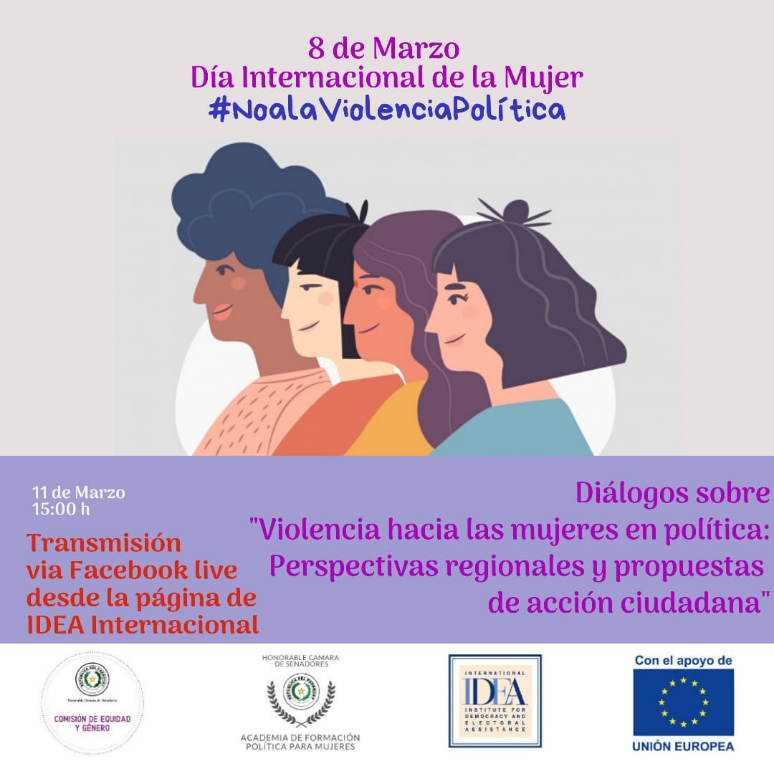

Violence against women in politics (VAWP) has yet to be recognized and discussed in Paraguay. It affects women in the active exercise of their political rights, and thus violates their human and constitutional rights. Gender-based violence in politics is one of the most widespread and naturalized manifestations of violence towards women. This form of gender-based discrimination impedes women’s full recognition as political subjects, and discourages many women in Latin America from pursuing political careers.
Women’s political representation is lagging in Paraguay after 31 years of democracy. Women obtained the right to vote only in 1961, making it the last country in the region to grant voting rights to women. Following the 2018 elections, there is 16 per cent female representation in the National Congress (18 per cent in the Chamber of Senators and 15 per cent in the Chamber of Deputies). A similar trend of under-representation is observed at the local level, with 10 per cent female mayors and 23 per cent female municipal councillors.
Starting in 2019, and in the framework of the EU-funded project ‘Consolidation of Paraguayan Democracy II’, International IDEA spearheaded a series of initiatives designed to mitigate VAWP. The Institute has effectively joined efforts with local stakeholders to highlight the problem and make it an active part of the agenda of strategic stakeholders, such as the Equity and Gender Commission of the Senate, the Superior Electoral Tribunal, the Ministry of Women, political parties and civil society.
Five international seminars and webinars were organized during the project’s first year, reaching over 2,500 people. These have started an important political conversation, substantive debate and sensitization to introduce the concept of VAWP into the social discourse and emphasize the need for specific legislation and regulation.
These joint efforts are beginning to yield tangible results. The Senate’s Equity and Gender Commission, which has received International IDEA technical assistance, is now discussing the details of a VAWP bill, which is expected to be submitted to the legislative process for debate and vote during 2021.
The commission is also currently designing an internal protocol for managing harassment and violence cases in the Senate. In parallel, International IDEA is supporting a discussion between key stakeholders, including the Ministry of Women, the Superior Electoral Tribunal and civil society women’s organizations, on creating an observatory on VAWP to record, analyse and follow up cases of violence against women in the run-up to the 2021 municipal elections.
We believe these are paradigm shifts in the making. Cultural change takes time, but it is certainly made of building blocks like these—advancing gender equality and safeguarding human rights in democracy one solid step at a time.
Feature photo: Senator Mirta Gusinky (l), Chair of the Equity and Gender Commission of the Paraguayan Senate; and Lourdes González-Prieto (r), Head of International IDEA’s Paraguay Programme, during an online round-table on violence against women in politics, held in September 2020.
